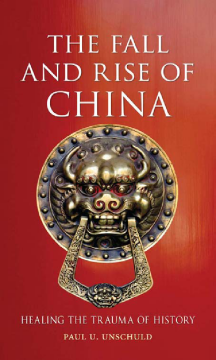
Additional Information
Book Details
Abstract
Today, China is a global power, home to the world’s fastest-growing economy and largest standing army—which makes it hard to believe that only 150 years ago, China was enduring defeats by Western imperial powers and neighboring Japan. For a time, the Middle Kingdom seemed like it was on the verge of being overtaken by foreign interests—but the country has quickly and ambitiously become a player on the world stage once again.
In this absorbing account of how China refashioned itself, Paul U. Unschuld traces the course of the country’s development in the nineteenth and early twentieth centuries. Faced with evidence of the superiority of Western science and technology, Unschuld shows, China delivered an unsparing self-diagnosis, identifying those aspects of Western civilization it had to adopt in order to remove the cultural impediments to its own renaissance. He reveals that China did not just express its many aversions to the West as collective hatred for its aggressors; rather, the country chose the path of reason and fundamental renewal, prescribing for itself a therapy that followed the same principles as Chinese medicine: the cause of an illness lies first and foremost within oneself. In curing its wounds by first admitting its own deficiencies and mistakes, China has been able to develop itself as a modern country and a leading competitor in science, technology, and education.
Presenting an entirely new analysis of China’s past, this crisp, concise book offers new insights into the possibilities of what China may achieve in the future.
Paul U. Unschuld is professor at and director of the Horst-Goertz Endowment Institute for the Theory, History, and Ethics of Chinese Life Sciences at Charité-Medical University Berlin. He is the author of Medicine in China: A History of Ideas.
